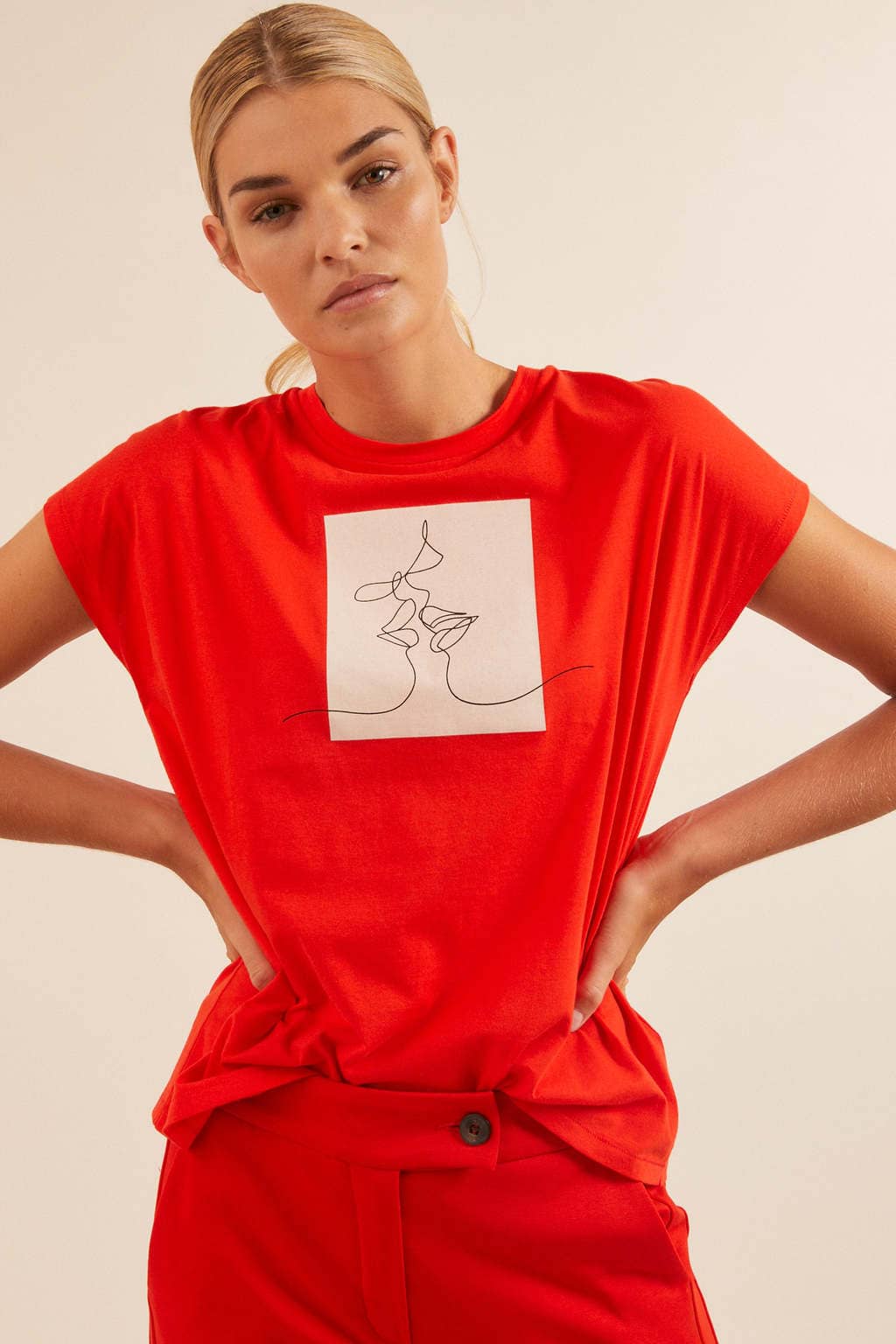
With the rise of online shopping replacing brick-and-mortar stores, fashion from so many different brands all around the world have become available to college girl buyers just like us!
Whenever I want to buy something new instead of thrifting it, it always feels so much better to spend my money supporting a local artist or a brand that gives back to the community and produces their items in an ethical way!
{RELATED POST: 20 Sustainable Fashion Brands We Absolutely Love}
Thankfully, a lot of these designers are more accessible through online stores and Instagram or Facebook pages.
Here, from me to you, are ten great ethical fashion brands to check out if you’re looking to shop ethically. (Be sure to see our favorite ethical fashion books, too, for more on making a difference.)
Table of Contents
Girlfriend Collective

If you’re looking for everyday college girl basics and workout gear, Girlfriend Collective is the way to go! I love the pastel colors and comfy style of their athleisure looks.
This brand takes recycled water bottles and fishing nets that would normally pollute the ocean and turns them into cute tops and leggings.
Plus, their factory “pays living wages, provides fair working hours and safe conditions, allows unionization, and uses no forced or child labor.” The brand remains in touch with their factory workers and listens to their needs to ensure that their workers are treated right.
Lanius Fashion

German fashion label Lanius is an ethical fashion brand that specializes in upscale women’s business wear and high quality basics. If you’re looking to invest in a pair of work pants or a new formal coat, this is the place to get it!
They use organic, vegan materials and they take their time with each design – ensuring great quality and ethical craft through their use of producers that are compliant with the SA8000 standard and the Fair Wear Standard.
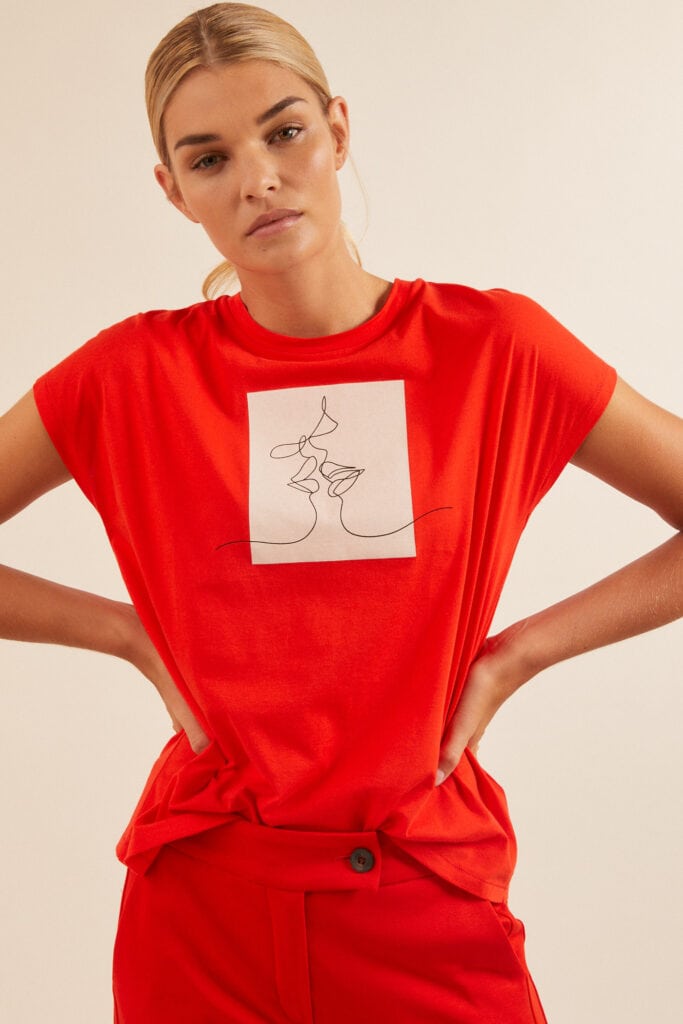
They even contribute to international social and economic issues. They have multiples t-shirts, this one called the “CHARITYSHIRT ‘In Love,'” that when purchased, gives a small donation by the company to “school projects in India.”
Mymarini

The idea for Mymarini swimwear came when the founder found such a lack of swimwear for active women that was made ethically and sustainably.
A lot of women’s swimwear is too frilly or revealing to be functional for much besides lounging at the pool, but Mymarini finds an intersection between stylish and functional. I love their monochromatic swimsuits that feature shades of blue, orange, and pink!
This brand uses a thick fabric made from fishing nets to ensure that they’re saving energy and materials as well as the environment. The products are durable and made to last – Mymarini gives great instructions on how to care for your swimsuit on their website!
Dazey LA
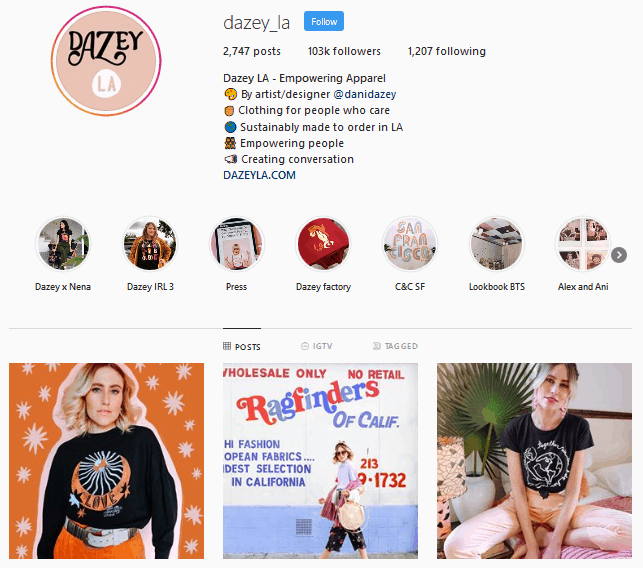
I’ve been shopping with Dazey LA for a while – their graphic t-shirts are super cute and empowering. The best thing about this brand is how every item is hand drawn and hand-made by the owner. It feels great to be able to support an artist while getting some gorgeous gear!
Another great aspect of Dazey LA is how empowering their products are. Like this t-shirt, many of their products have messages supporting “self care, inclusivity, women’s rights, and navigating our ever increasing digital world.”

Dazey LA believes in the idea of creating “a community that feels heard and understood by our brand and platform,” and representing that community in their clothing.
Cotton&Clay Co.
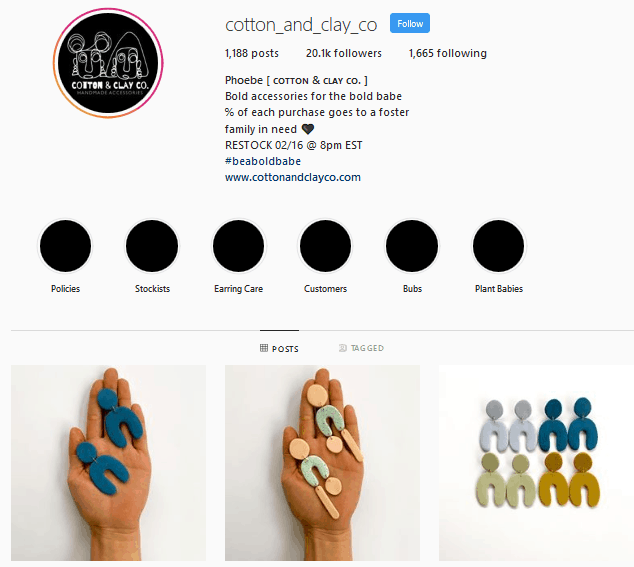
I’m ALWAYS looking for dope new jewelry to add to my collection. Cotton&Clay Co. is another ethical fashion brand that you can buy from while supporting an artist who hand-makes all her own products, which is amazing!
The company was founded by a gal who graduated college and wasn’t quite sure what to do (relatable, right?) and it grew from there. Now, Cotton&Clay Co. has beautiful statement jewelry that is rolled out and restocked in waves to assure each customer has a perfect, hand-made piece.
Plus, per their Instagram bio, they donate a portion of the profit to foster families – you can support a great cause that supports a great cause!
TAMGA Designs

TAMGA Designs is a positive brand born from tragedy — after a factory collapsed, a couple living in Bangladesh was inspired to take action and create their own brand that wouldn’t exploit and mistreat their workers.
Now, they have a brand that boasts “vibrant and premium quality clothing from the world’s best sustainable materials, with dignified conditions for every worker throughout the process.”
In addition to their products, the brand also donates a portion of their sales to help combat deforestation by replanting trees in Indonesia.

Their beautifully boho clothes (like this skirt) are made from environmentally friendly fabrics and designed to feel comfortable and pretty at the same time.
BANGS Shoes

BANGS Shoes are one of the most stylish and ethical shoe options I’ve seen! They’re simple and functional while still adding a cute, canvas touch to any outfit. Perfect for the college girl on the move around campus.
The shoes are made from vegan, ethically sourced materials in a “family-owned factory whose internal culture matches the standards of our own.”
In addition to the ethical production, BANGS Shoes also invests a portion of their profits into other small, ethical businesses to help them grow. It’s great to have a company that is ethical, but it’s even better to know that they support other companies doing the same.
Uye Surana
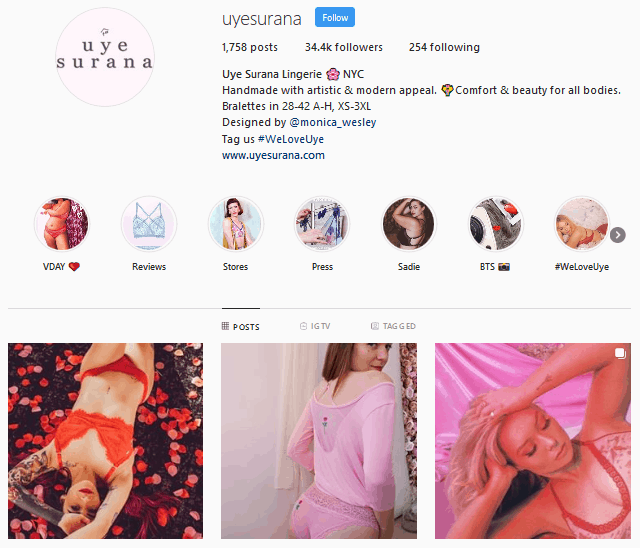
Uye Surana is an awesome ethical fashion brand for a number of reasons. First, every item is designed and hand-made by the owner and her staff in order to incorporate art into lingerie shopping.
The company also believes in having as small a carbon footprint as possible, so they use dead stock from other companies in order to produce their products. In addition, Uye Surana partners with a recycling team to ensure their scraps don’t get thrown out.
If I haven’t already convinced you to browse through their Instagram, all of their lingerie is limited edition – every piece you buy is special AND the company only produces what is needed, meaning no waste.
And of course, I love them for their size range. All of Uye Surana’s products are adjustable to a wide range of body types, so we can all wear their super cute pieces!
Nena & Co.
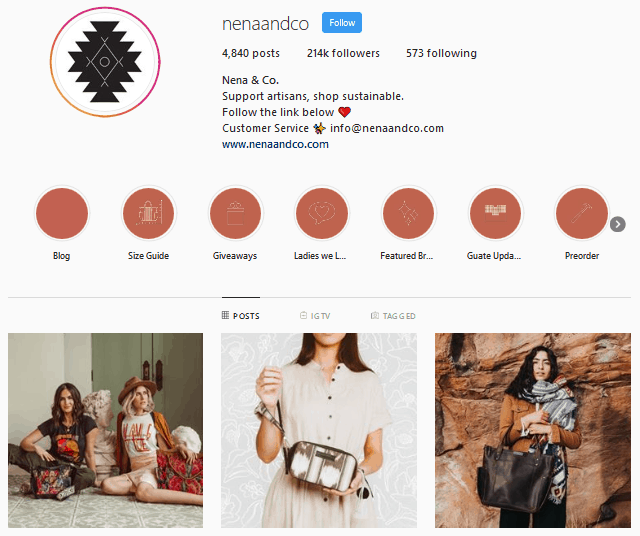
Nena & Co. makes amazing accessories and has an even more inspiring backstory. The founder of the company sought to pay heritage to her Guatemalan ancestry, so she and her mother who still lives in Guatemala learned more about the traditional weaving techniques and fabrics there.
Their story doesn’t stop there – they now employ local Guatemalan artists, weavers, and leather makers with livable wages to hand-make each of the products at Nena & Co.

Bags like this one, although a bit pricey, can be bought knowing you’ll be supporting artists who create cultural art that is durable and well-made.
Additionally, Nena & Co. uses up-cycled fabrics for the production of their pieces and cuts down on water use in the process.
Boyish Jeans

Jeans are notorious for being an item that’s very harmful for the environment in its production. Boyish Jeans is an ethical fashion brand that reduces the water use, dye, waste, and emissions that typically go into the production of jeans.
Their jeans are modeled to be “men’s fabrics and fits tailored for a woman’s body” – meaning that they take your favorite vintage boyfriend jeans styles and make them into something that actually fits – like this pair:

One of my favorite aspects of Boyish Jeans is that they’re aware of their environmental impact as a brand – they take care to make sure all of their labels and packaging are environmentally friendly.
The audited, ethical factories they use to produce the fabric and create the jeans are all located close to each other to make sure they leave as little of a carbon footprint as possible when transporting products.
What do you think? What’s your favorite ethical fashion brand?
For more places to shop for eco-friendly and ethical items, be sure to see our guide to eco accessories and where to buy them.
What items would you like to buy from slow fashion brands? Are these brands a good representation of sustainability in fashion? How important is shopping ethically?
Let me know in the comments!
